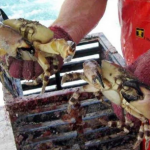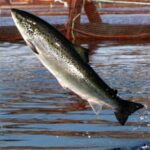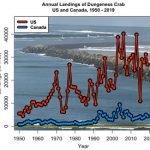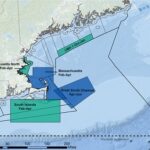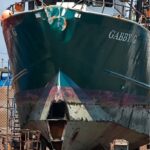Daily Archives: August 3, 2015
Washing up on the Florida Coast, Military Ordinance, Unexploded Bombs, Dumped in Gulf of Mexico
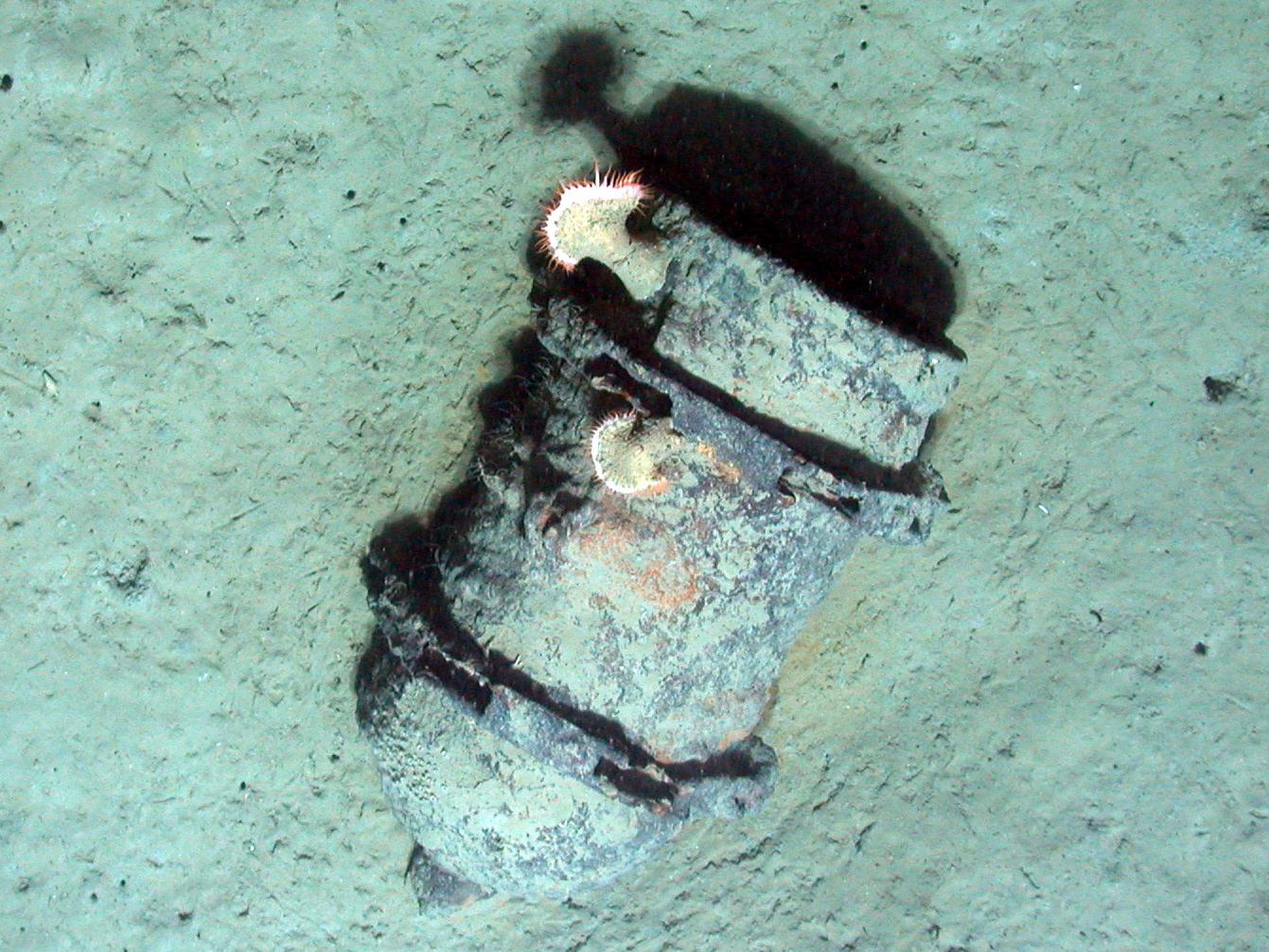 Texas A& M oceanographic researcher have reported that unexploded bombs and other military ordnance washing up on the Florida coast has brought more awareness U.S. government materials dumping decades ago in the Gulf of Mexico could pose serious threats. Millions of pounds of bombs and other types of ordnance are scattered over the Gulf of Mexico and also off the coasts of at least 16 states, from New Jersey to Hawaii. The bombs can get caught in fishermen’s nets as they trawl along the ocean seafloor, or wash up on shore such as last week near the Tampa area. Read the rest here 19:24
Texas A& M oceanographic researcher have reported that unexploded bombs and other military ordnance washing up on the Florida coast has brought more awareness U.S. government materials dumping decades ago in the Gulf of Mexico could pose serious threats. Millions of pounds of bombs and other types of ordnance are scattered over the Gulf of Mexico and also off the coasts of at least 16 states, from New Jersey to Hawaii. The bombs can get caught in fishermen’s nets as they trawl along the ocean seafloor, or wash up on shore such as last week near the Tampa area. Read the rest here 19:24
With court date on ballot measure looming, Kenai setnetters ponder their future
This summer, just as they have done for generations, setnetters are working the shores of the western Kenai Peninsula, stringing out nets and hauling in hundreds of thousands of fish from the abundant sockeye salmon runs of Southcentral Alaska. Last month, the Alaska Fisheries Conservation Alliance submitted 43,000 signatures to the Alaska Division of Elections to certify an initiative that would ban setnets in Alaska’s urban areas. If approved by voters, the initiative would outlaw setnets in the five designated urban areas of Alaska, including Valdez, Ketchikan, Fairbanks — and the Kenai Peninsula. Read the rest here 18:15
Your Definition of Bycatch is Most Likely Incorrect
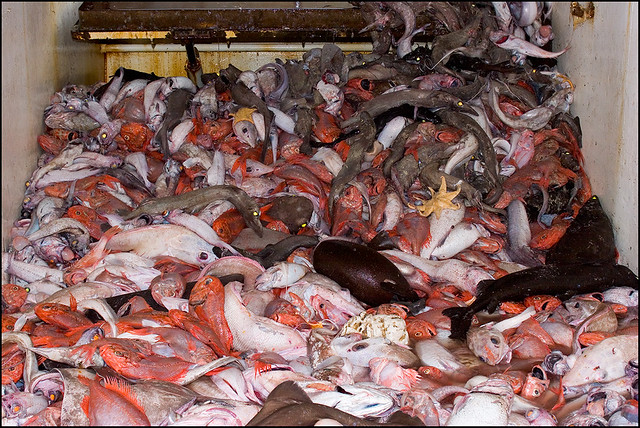 So why is this important? One reason it’s important is because when the world’s largest ocean conservation organization does not understand what bycatch even is, then we have a very big problem. When ocean conservation organizations do not understand what bycatch is, it can lead to scientifically flawed statistics published in reports such as “Wasted Catch” which only amplify the confusion by spreading misinformation about responsible U.S. fisheries to the mass general public. Read the rest here 16:59
So why is this important? One reason it’s important is because when the world’s largest ocean conservation organization does not understand what bycatch even is, then we have a very big problem. When ocean conservation organizations do not understand what bycatch is, it can lead to scientifically flawed statistics published in reports such as “Wasted Catch” which only amplify the confusion by spreading misinformation about responsible U.S. fisheries to the mass general public. Read the rest here 16:59
Field Hearing Highlights Draconian Rejection of Science, Local Stakeholder Input with National Park Service’s Plan for Biscayne Bay
 Today, the House Committee on Natural Resources and the House Small Business Committee held a joint field hearing in Homestead, Florida, on the National Park Service’s (NPS) General Management Plan (GMP) for Biscayne National Park released in June 2015. The GMP, which includes a Marine Reserve Zone (MRZ) that would be closed to all commercial and recreational fishing, conflicts with the position of the Florida Fish and Wildlife Conservation Commission (FWC) and the recommendations of the park’s own stakeholder working group. Read the rest here 16:06
Today, the House Committee on Natural Resources and the House Small Business Committee held a joint field hearing in Homestead, Florida, on the National Park Service’s (NPS) General Management Plan (GMP) for Biscayne National Park released in June 2015. The GMP, which includes a Marine Reserve Zone (MRZ) that would be closed to all commercial and recreational fishing, conflicts with the position of the Florida Fish and Wildlife Conservation Commission (FWC) and the recommendations of the park’s own stakeholder working group. Read the rest here 16:06
ASMFC Summer Meeting – August 4-6, 2015 – Alexandria, Virginia, Listen LIVE!
 The ASMFC is holding it’s Summer meeting in Alexandria, Va. Issue’s: American Lobster Benchmark Stock Assessment Action, Jonah Crab Fishery Management Plan for Final Approval Final Action , Atlantic Striped Bass, Atlantic Menhaden, and more. Click here to listen to the meeting live Click here to review the final agenda.
The ASMFC is holding it’s Summer meeting in Alexandria, Va. Issue’s: American Lobster Benchmark Stock Assessment Action, Jonah Crab Fishery Management Plan for Final Approval Final Action , Atlantic Striped Bass, Atlantic Menhaden, and more. Click here to listen to the meeting live Click here to review the final agenda.
Shrimp Season Anomaly: season interruption, low prices make tough year for Mississippi Fishermen
Mississippi fishermen remain intent on harvesting this year’s shrimp crop in the shallow waters of the Gulf of Mexico despite  and restarted. Dave Burrage, Mississippi State University Extension professor of marine resources at the Coastal Research and Extension Center in Biloxi, said the shrimp season first opened June 3, closed June 19 when shrimp were too small, and then reopened July 13. “This season has been an anomaly so far,” Burrage said. The Mississippi season opened with 310 boats this year, down from 368 boats on opening day in 2014. Read the rest here 12:43
and restarted. Dave Burrage, Mississippi State University Extension professor of marine resources at the Coastal Research and Extension Center in Biloxi, said the shrimp season first opened June 3, closed June 19 when shrimp were too small, and then reopened July 13. “This season has been an anomaly so far,” Burrage said. The Mississippi season opened with 310 boats this year, down from 368 boats on opening day in 2014. Read the rest here 12:43
Would netters OK a flounder buyout?
During the run-up to a June 17 public hearing about southern flounder management, several members of the N.C. Marine Fisheries Commission asked that the meeting be held in Raleigh. Their chairman, Sammy Corbett, rejected their requests, and the meeting was held in New Bern. The reason for the request was that most of the public hearings the Commission holds are in the eastern part of the state, where commercial fishermen rule the roost (lmao!). So several Commission members wanted recreational anglers to have a better chance to speak. Read the rest here 12:12
N.C. Marine Fisheries Commission asked that the meeting be held in Raleigh. Their chairman, Sammy Corbett, rejected their requests, and the meeting was held in New Bern. The reason for the request was that most of the public hearings the Commission holds are in the eastern part of the state, where commercial fishermen rule the roost (lmao!). So several Commission members wanted recreational anglers to have a better chance to speak. Read the rest here 12:12
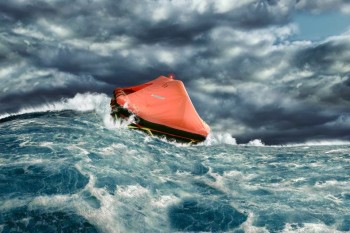
Shem Creek shrimpers grapple with impending life raft requirement
With an online effort to collect $30,000 to purchase life rafts for Shem Creek’s shrimpers stalled out around the $2500 mark. Matthew Hooper of the USCG’s Charleston sector says he’s not aware of any Shem Creek boats equipped with life rafts; Shem Creek Fisheries estimates the rafts cost about $3000 each.According to Brunson, the fee represents another hardship for local shrimpers who’ve struggled to stay in business in the face of international competition; meager harvests and the demise of area processors. Read the rest here 11:16
Coast Guard Highlights Importance of Marine Safety
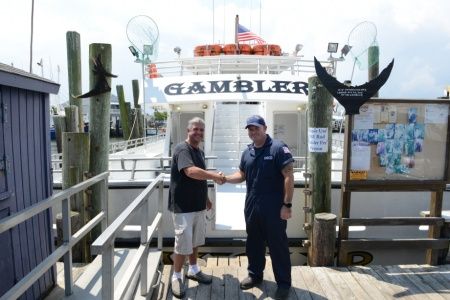 CAPE MAY – Marine Safety is one of the U.S. Coast Guard’s important 11 statutory missions, and is the area where the Coast Guard interacts the most with commercial vessels. Coast Guard personnel work to ensure commercial vessel safety by inspecting vessels under construction, inspecting vessels in service, investigating marine casualties, and licensing professional mariners. Sector Delaware Bay and its marine inspectors play a pivotal role in this mission. Read the rest here 09:15
CAPE MAY – Marine Safety is one of the U.S. Coast Guard’s important 11 statutory missions, and is the area where the Coast Guard interacts the most with commercial vessels. Coast Guard personnel work to ensure commercial vessel safety by inspecting vessels under construction, inspecting vessels in service, investigating marine casualties, and licensing professional mariners. Sector Delaware Bay and its marine inspectors play a pivotal role in this mission. Read the rest here 09:15
Nunavut wins EU exemption for seal hunt
 Nunavut sealskins now qualify for an exemption to the European Union’s ban on seal imports, the territorial government announced Friday. The EU has banned the import of seal products since 2009, but allows imports from hunts that certified as being conducted by indigenous people. “This is an important step towards the recognition of sealing as a way of life for Inuit,” said Nunavut Environment Minister Johnny Mike in a release. “We must ensure that communities benefit in a tangible way from this positive development by continuing to promote the recovery of international seal markets.” Read the rest here 08:38
Nunavut sealskins now qualify for an exemption to the European Union’s ban on seal imports, the territorial government announced Friday. The EU has banned the import of seal products since 2009, but allows imports from hunts that certified as being conducted by indigenous people. “This is an important step towards the recognition of sealing as a way of life for Inuit,” said Nunavut Environment Minister Johnny Mike in a release. “We must ensure that communities benefit in a tangible way from this positive development by continuing to promote the recovery of international seal markets.” Read the rest here 08:38
Federal Fishery Disaster Aid Meeting to be held in Gloucester tonight
 The distribution of the nearly $33 million in federal groundfish disaster aid has moved through the first two phases — or bins, in the parlance of
The distribution of the nearly $33 million in federal groundfish disaster aid has moved through the first two phases — or bins, in the parlance of NOAA Fisheries NMFS and the respective state fisheries directors — in the past year-and-a-half. Tonight, the Gloucester Fishing Commission will take a stab at coming up with what it believes to be the best option for the nearly $7 million earmarked for Massachusetts. The meeting is set for 6 p.m. at Gloucester City Hall. Read the rest here 08:05

































